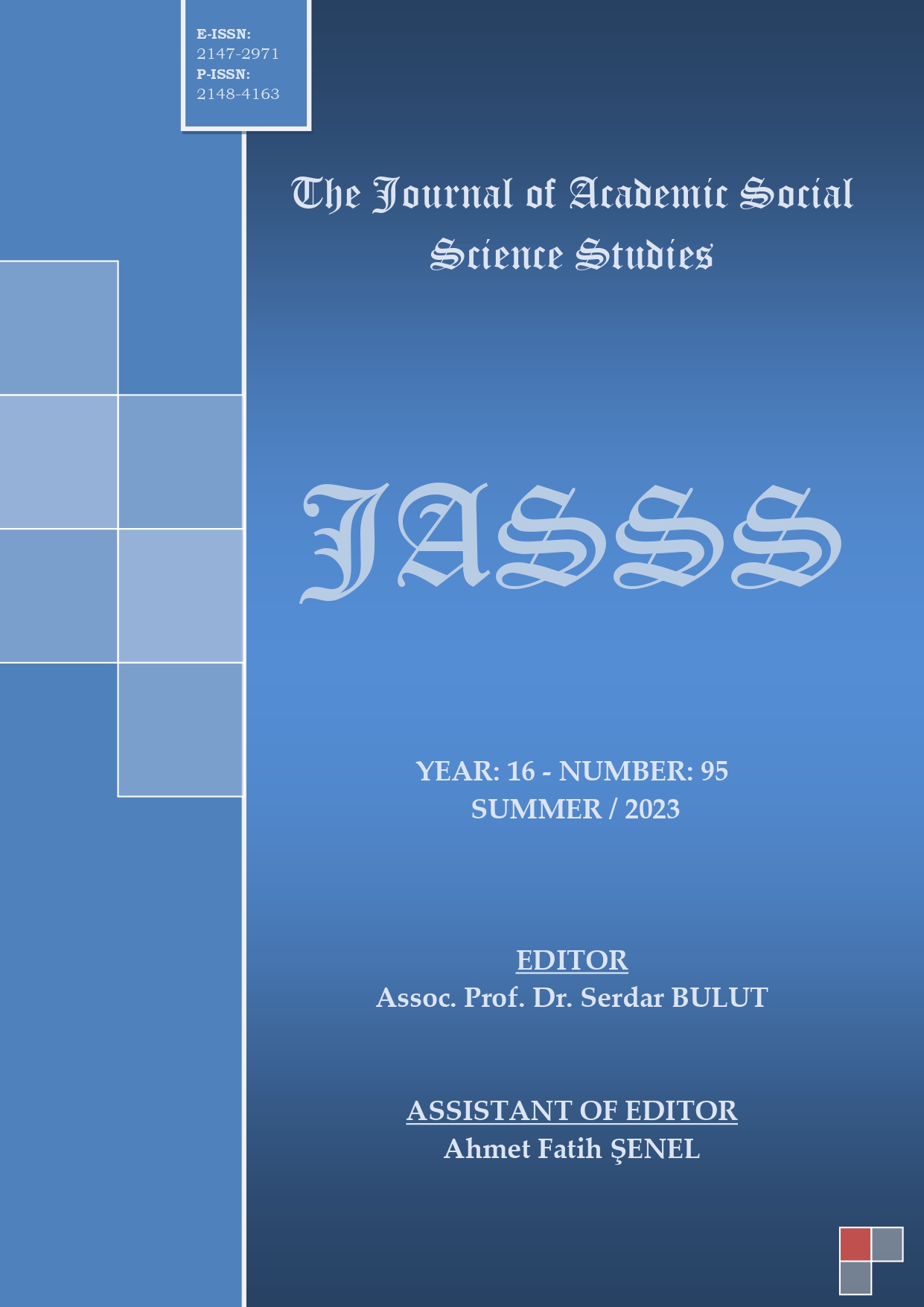Author :
Abstract
Bu çalışma, Kur’an-ı Kerim araştırmaları ile ve tefsir alanında karşılaşılan dil sorunları ile ilgilidir. Çalışma önemli bir noktaya dikkat çekmek için yapılmıştır ki bu da bazı araştırmacıların Kur’an-ı Kerim’in kelime ve kavramlarından bir kısmını, gündelik hayatlarında kullanılan dil ile ilişkili olarak anlamalarıdır. Bu maksatla gündelik dilin kullanımı ile ilişkilendirilerek yanlış anlaşıldığı düşünülen bazı kelimeler seçilmiş olup, çalışma için ele alınan kelimelerin manaları sözlüklerden, tefsir kitaplarından, Arap şiirindeki kullanımından ve Resulullah Efendimizin hadislerinden hareketle tespit edilmiştir. Dolayısıyla bu çalışmada kelime analizine dayalı araştırma yöntemi benimsenmiştir. Bu çalışma, birçok insan tarafından yanlış anlaşılan birtakım Kur ’an-ı Kerim ayetlerinin yeniden gözden geçirilmesini hedeflemektedir. Bu durumun ayetin tefsirini etkileyerek, ayeti gerçek anlamından uzaklaştırdığı düşünülmektedir. Ayrıca müfessirin, öncelikle sözcük, yapı ve cümleleri içeren Arap diline hâkim olması gerektiği de bilinmektedir. Dolayısıyla sözcükler, yerinde kullanılmadığı zaman ayet, gerçek anlamından uzaklaşmaktadır. Aslında seçilen kelimeler dilin sahibi olan Araplar için dahi zorken bu durum Arapça öğrenen yabancılar için de oldukça güç bir durumdur. Ayrıca bu çalışmayı önemli kılan iki husus vardır. Bu hususların ilki, bazı müfessirlerin Arapçaya tam olarak hâkim olmadan Kur’an- ı Kerim ayetlerini açıklamaya çalışmasıdır. Bazı kelimeler daha çok halk arasında kullanılan anlamıyla yaygın ve müşterek olmuştur. Ancak bu kelimelerin birçok insanın bilmediği farklı anlamları mevcut olup bu anlamlar, eski zamanlarda Araplar tarafından onların şiirleri ve hadislerinde kullanılmıştır. Kur’an- ı Kerim’i tefsir etmek isteyen kişi, kelimenin bütün anlamlarına eksiksiz bir şekilde vakıf olmalı ve bu anlamları ayetin bağlamıyla ilişkilendirmelidir. Bu, tefsir sürecinde yapılması gereken oldukça mühim bir durumdur. Bu çalışmanın ikinci önemli noktası ise, son yıllarda, tefsirde temel olarak Arapçaya dayanmayan ve Kur’an ayetlerini, psikolojik ve toplumsal bir bakış açısıyla tefsir etmeye çalışan bazı tefsir çabaları yaygınlık kazanmıştır. Bu durum psikolojiyi ve diğer sosyal bilimleri Kur’an tefsirinde merkeze alırken Kur’an’ı yerinde tefsir çalışmalarından uzaklaştırmıştır. Psikoloji ve sosyal bilimlerin Kur’an’ın tefsirine dâhil edilmesine karşı olunmamakla birlikte, bütüncül bir yaklaşımla, yani Kur’an tefsirinde Arap dili, belagati, hadisi şerifler, sosyal bilimler ve diğer bilimlerin kullanılması Kur’an-ı Kerim’in tefsirinde daha uygun ve kapsayıcı olduğu kanaatini taşımaktayız.
Keywords
Abstract
This study is about the language problems encountered in the field of Qur'an studies and tafsir. This study has been carried out to draw attention to an important point that some researchers have limited understanding of some of the words and concepts of the Qur'an, as in their daily lives. For this purpose, chosen some words from the Holy Qur'an that are associated incorrectly according to everyday language entities. The method of this research is to follow the meaning of the word in dictionaries, tafsir books, Arabic poetry and the hadiths of our Master Rasulullah. Therefore, in this research, we followed the method of explanation based on word analysis.This study aims to revise some verses of the Holy Quran that are misunderstood by many people. This situation affects the interpretation of the verse and takes the verse away from its true meaning. We also know that the interpreter must have command of the Arabic language, which includes words, structures and sentences. Therefore, when the words are used out of their literal meaning, the verse deviates from its real meaning. In fact, the words I chose are difficult even for the Arabs who are the owners of the language, but this will be difficult for foreigners learning Arabic as well. There are two aspects that make this study important. The first of these issues is that some commentators try to explain the verses of the Qur'an without having a full command of Arabic. Some words have become common and common with the meaning used among the people. However, these words have different meanings that many people do not know, and these meanings were used by the Arabs in their poems and hadiths in ancient times. The person who wants to interpret the Quran must be fully aware of all the meanings of the word and relate these meanings to the context of the verse. This is a very important situation that must be done in the translation process. The second important point of this study is that in recent years, some commentators who are not based on Arabic as a basis in tafsir and who try to interpret the verses of the Qur'an from a psychological and social point of view that do not rely on Arabic for the comprehensibility of the verse have become widespread. While this situation formed the basis of psychology and other social sciences in the interpretation of the Qur'an, it moved the Qur'an away from the real science of tafsir. Although there is no objection to the inclusion of psychology and social sciences in the interpretation of the Qur'an, it is more appropriate to use the Arabic language, rhetoric, hadith sharifs, social sciences and other sciences in the interpretation of the Qur'an with a holistic approach. The method followed by the researcher in this study is the analytical method, and the researcher chooses some words that people misunderstand, and then uses Arabic dictionaries, Arabic poems, Based on The Prophet's hadiths and fluent Arabic words, he analyzed linguistically. The researcher approached the selected words from two perspectives. The first of these is how people misunderstand the chosen word, and the second is the meaning of the word in the verse.





